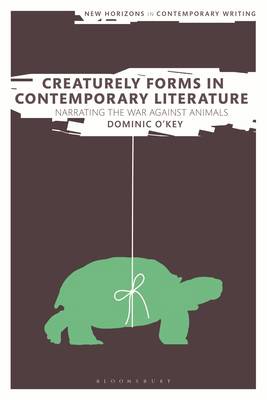
- Afhalen na 1 uur in een winkel met voorraad
- Gratis thuislevering in België vanaf € 30
- Ruim aanbod met 7 miljoen producten
- Afhalen na 1 uur in een winkel met voorraad
- Gratis thuislevering in België vanaf € 30
- Ruim aanbod met 7 miljoen producten
Zoeken
€ 69,45
+ 138 punten
Uitvoering
Omschrijving
We are living through a period of planetary crisis, a time in which the mass production and consumption of some animals is made possible by the mass extinction of many others. What is the role of literature in responding to this war against animals? How might literary criticism read for animals?
In Creaturely Forms in Contemporary Literature, Dominic O'Key develops the bold argument that deep attention to literary form enables us to rethink human-animal relations. Through chapters on W. G. Sebald, J. M. Coetzee and Mahasweta Devi, as well as close readings of works by Arundhati Roy and Richard Powers, O'Key reveals how literary forms can unsettle the fictions of human supremacy and craft alternative, creaturely forms of relation. An intervention into both the humanism of literary theory and the representational focus of animal studies, this provocative work makes the case for a new formalism in light of our obligation to fellow creatures.Specificaties
Betrokkenen
- Auteur(s):
- Uitgeverij:
Inhoud
- Aantal bladzijden:
- 216
- Taal:
- Engels
- Reeks:
Eigenschappen
- Productcode (EAN):
- 9781350189676
- Verschijningsdatum:
- 27/07/2023
- Uitvoering:
- Paperback
- Formaat:
- Trade paperback (VS)
- Afmetingen:
- 156 mm x 234 mm
- Gewicht:
- 303 g

Alleen bij Standaard Boekhandel
+ 138 punten op je klantenkaart van Standaard Boekhandel
Beoordelingen
We publiceren alleen reviews die voldoen aan de voorwaarden voor reviews. Bekijk onze voorwaarden voor reviews.







